Marcus Ferguson
B. Soc. Sci. (Psychology)(Honours),
B.Sc.,
Diploma of Counselling,
NLP Master Practitioner
Certified Master Hypnotherapist,
Diploma of Shamanic Practice
Our Purpose…
… is to bring about deep transformation, in a way that leads to long lasting and ongoing change in the quality of a man’s life.
Every session of counselling or coaching should be impactful – you should leave at the end of each session feeling different, acting differently, or with a clear skill or new knowledge that will make a real difference.
In more than 20 years of counselling, I have found that it is not enough to provide just a sympathetic ear and some good advice. I have studied everything from traditional counselling and mainstream psychology, through life coaching, hypnosis and NLP, through more unusual approaches such as gestalt, narrative therapy and bioenergetics, to transpersonal psychology and shamanism. I have always searched for what is truly effective, for the things that really make a difference.
I have forged a unique and powerful approach to the treatment of stress, anxiety and depression that starts from the assumption that you can get better. Low self esteem, lack of confidence, lack of assertiveness can be dealt with. A passionate and purposeful life, filled with joy and meaning, is the outcome. Relationships filled with playful intimacy and meaningful communication become a reality.
“Marcus brings to his work a rare combination of practical, results oriented thinking and deep psychological and spiritual understanding. He has the ability to make complex ideas seem simple, and to make the esoteric practical. His ability to impact people and change their lives is evident from the very first session you have with him.
Marcus is a counsellor and psychotherapist with over 20 years experience. He holds an Honours degree in psychology, as well as degrees in physics and exercise science. He holds diplomas in counselling and shamanic practice, multiple certifications in NLP and Hypnosis, and has trained in gestalt therapy, bioenergetics, and multiple approaches to counsellng, including cognitive-behavioural therapy, solution-focused counselling and narrative therapy. Marcus has also been initiated as a shaman.”
Coaching or Therapy?
Common questions I get asked are “What is the difference between coaching and therapy/counselling?” and “Should I book in for coaching, or therapy?”
My short answer to the question is – come in for a session. It will quickly become clear as we work whether you need therapy, coaching or a blend of the two. The first session is much the same anyway – getting to know you, gathering information and getting a sense of where you are and where you want to be.
It is useful however to discuss the similarities, differences and relationship between the two:
In basic terms, coaching assumes a client who is basically sound and whole, who has something they would like to improve, or something they would like to achieve. A project, a business plan, life goals or financial abundance, for example. It would be like a healthy athlete who wants to improve his football or achieve a new level – play for a higher grade for example. The coach would train and support the athlete to improve his fitness and skills, through weekly sessions and homework.
On the other hand, therapy assumes there is some pain or problem, a client in some distress – anxiety, depression, relationship breakdown, for example. The aim is to end the suffering, fix the problem, save the relationship. This would be like an athlete with a knee injury, who can’t play and needs to see a physiotherapist. The therapist would also perhaps work with weekly sessions and homework, until the client could run again.
The distinction seems clear. However, the athletic coach and the physiotherapist have many overlapping skills. And many athletes will be working with both at once, with the balance varying depending on the season and the state of the athlete’s body.
In addition, sometimes a problem does not become evident until someone tries something new. If a coaching client is not following through with assigned tasks, this could because a fear or anxiety stops them. Working through this is a therapy process. So, a good coach must know some therapy.
On the other hand, a client may come in for therapy for anxiety. As their anxiety departs, they may start to set some larger goals, and being coached to achieve them is the final part of the therapy.
I find that my most successful client outcomes come when therapy and coaching are woven together, a magic dance of two ideas that together are more powerful than either one alone. So don’t let the question stop you – come in and get started!


